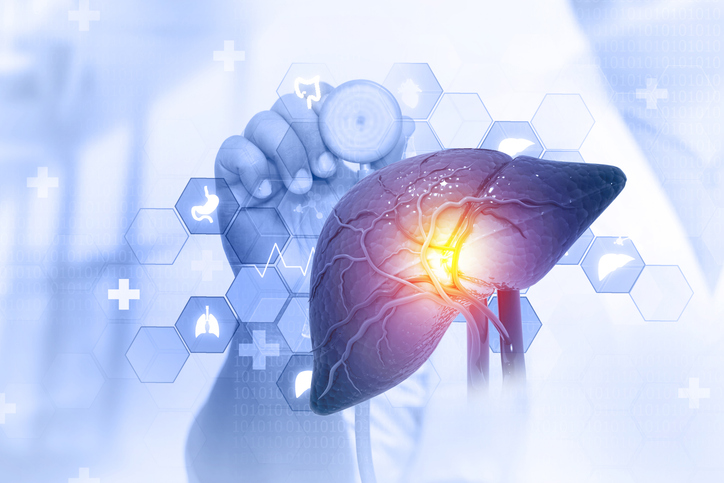There are six main pathways for Phase 2 Detoxification, one of which is glucuronidation. This detoxification pathway will be discussed in-depth in this blog.
So what does glucuronidation do? A derivative of glucose, glucuronic acid has the ability to render a toxic substance less toxic, as well as making it water soluble so that the body is able to eliminate it. (https://www.ncbi.nlm.nih.gov/pmc/articles/PMC3797149/)
Primarily, this elimination happens in the liver, however, glucuronidation enzymes are also found in parts of the body that need particular protection from toxicity such as, the brain, gut, kidneys, pancreas, placenta, prostate, and breasts. (https://pubmed.ncbi.nlm.nih.gov/20668491/)
The types of substances removed are sex and thyroid hormones, 70% of pharmaceuticals, anything bound to bile including fat-soluble vitamins and fat-soluble toxins. Chemicals and solvents such as PAHs, BPA, HACs and some fungal and mycotoxins are among those eliminated. (https://www.drlaurendeville.com/treating-chemical-sensitivity/)
As mentioned above, the majority of the glucuronidation enzymes are found in the liver. Once the toxins have become water soluble, the liver dumps them into the small intestine. The gut flora then produces an enzyme called beta-glucuronidase which can separate the bond between the glucuronic acid and the toxin, leaving the toxin with the potential to recirculate. (https://hindawi.com/journals/jnme/2015/760689/) Gut flora should live in the colon, not the small intestine, however, in the cases of SIBO, bacteria can overgrow in the small intestine rendering a decrease in effectiveness of the glucuronidation pathway and increasing the toxicity.
Because of this, there is a connection between elevated beta-glucuronidase and cancers, especially colon cancer. Additionally, there is a connection with breast and prostate cancer as glucuronidation is necessary for eliminating sex hormones. (https://europepmc.org/article/med/18772850)
As well as cancer there is a connection between obesity and beta-glucuronidase activity. This is most likely due to the relationship between obesity, insulin resistance, and dysbiosis (overgrowth of bad gut flora).
Luckily, good flora such as L. casei and B. breve have been shown to lower the activity of beta-glucuronidase activity as does prebiotics and food good for the gut flora. (https://pubmed.ncbi.nlm.nih.gov/17327863/)
In short, a healthy gut equals a less toxic body.
There are certain medications that decrease the glucuronidation enzyme activity. Some of these are common medications such as NSAIDs, sedatives and anxiety medications. (https://pubmed.ncbi.nlm.nih.gov/20668491/) This is another reason why treating the reason, not the symptoms is the best approach.
Smoking can also decrease the enzyme activity (just in case you needed another reason to quit!) (https://pubmed.ncbi.nlm.nih.gov/25799848/)
An overall healthy diet can ensure your gut remains balanced. There are also specific foods which are especially supportive for the glucuronidation pathway. The main one being cruciferous vegetables (any vegetable that flowers outward) such as, cauliflower, broccoli, bok choy, brussel sprouts etc. (https://pubmed.ncbi.nlm.nih.gov/12151360/) The compound sulforaphane is predominantly found in high levels in these types of vegetables which helps to stimulate glucuronidation enzymes as well as detoxification in general. (https://pubmed.ncbi.nlm.nih.gov/25944116/)
An additional bonus is that cruciferous vegetables are also high in sulfur, meaning they support the sulfation and glutathione transferase pathways as well.
Another type of vegetable that can upregulate the glucuronidation enzymes are the apiaceous family vegetables. This includes parsnips, celery and parsley. (https://aacrjournals.org/cancerpreventionresearch/article/2/4/345/47749/Cruciferous-Vegetable-Feeding-Alters-UGT1A1)
A generalised opinion is the more plant-based your diet is, the lower beta-glucuronidase activity there will be. This is due to the fact that fiber tends to keep your gut healthier as fruits and vegetables naturally produce a beta-glucuronidase inhibitor and your gut flora is directly related to what you eat. (https://pubmed.ncbi.nlm.nih.gov/2346674/)
Beverages can also hold benefits. Green tea, rooibos, honeybush tea and coffee may also support glucuronidation. (https://pubs.acs.org/doi/abs/10.1021/jf0344643) It is important to keep in mind, however, that caffeine can inhibit the elimination of sex hormones, so moderation is key. Alternatively, choose an organic decaf version of coffee or green tea.
Extracts from some of the beneficial foods mentioned above can be taken in supplement form to increase the concentration that you consume. D-glucarate, which inhibits activity of beta-glucuronidase, is an extremely beneficial supplement to take to support this pathway. This supplement is also referred to clients in need of aid in metabolism of sex hormones. (https://pubmed.ncbi.nlm.nih.gov/12197785/#:~:text=Oral%20supplementation%20of%20calcium%2DD,in%20Phase%20II%20liver%20detoxification.)
Through the support of Naturopath Charmaine D, the obstacles to your health can be identified and removed. She can also provide your body with the building blocks needed to heal itself. By supporting the liver’s pathways for detoxification, you are taking a huge step in the right direction for your obstacles to a cure removal. And finally, by supporting the glucuronidation pathway, you will be incidentally supporting all the other detoxification pathways as a healthy microbiome and healthy diet are beneficial for all of them.

